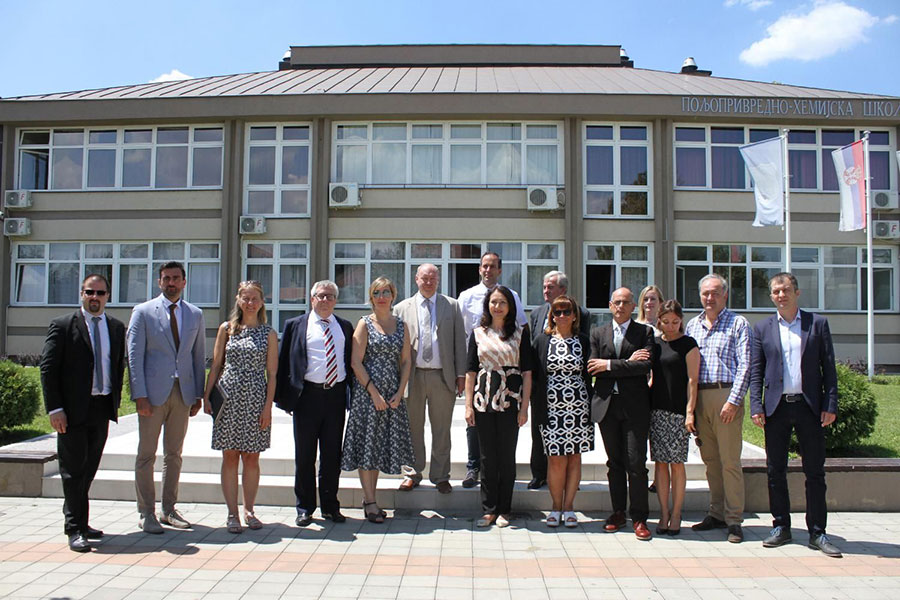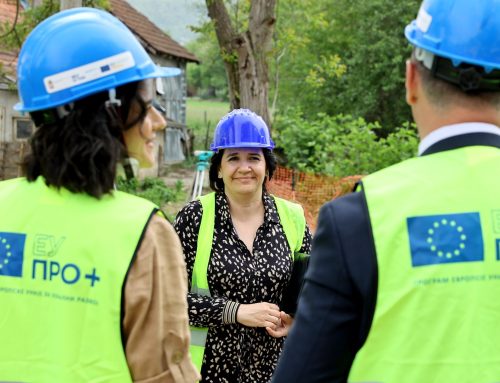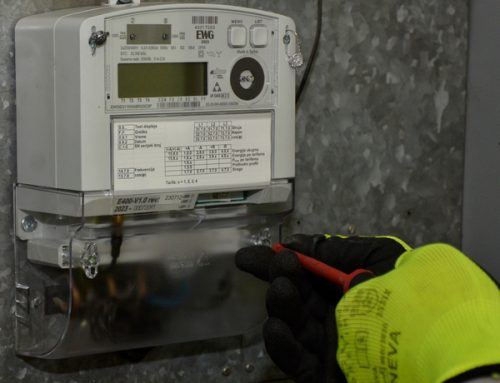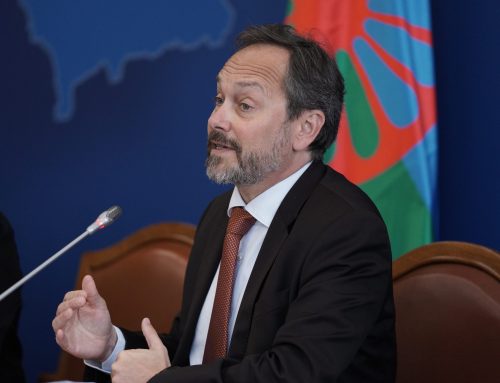During a two-day visit to Serbia, the Delegation of the EP Committee on Budgetary Control visited Obrenovac to make sure that the EU funding is spent efficiently in Serbia and see the impact of the EU Assistance for Flood Relief in Serbia Programme. The EU is the biggest donor in Obrenovac, having allocated over EUR11 million for flood relief, including the construction and reconstruction of private houses and public buildings, support for agricultural producers and small businesses as well as cleaning of drainage canals and repair of pumping stations.
The Delegation, comprised of Patricija Šulin, Arndt Kohn, Martina Dlabajova, Derek Vughan, Ryszard Czarnecki, Hrvoje Svetić, Vera Milićević, Younous Omarjee, Helene Agnes Beaghe, Orsolya Balogh and Szabolcs Fazakas, was greeted by Marko Blagojevic, Director of the Government Office for Public Investment Management and local officials.
Blagojevic said that no family was left behind, adding that Serbia is now safer than it used to be before the floods. According to him, the country now has EUR70 million in emergency funding thanks to cooperation with the World Bank.
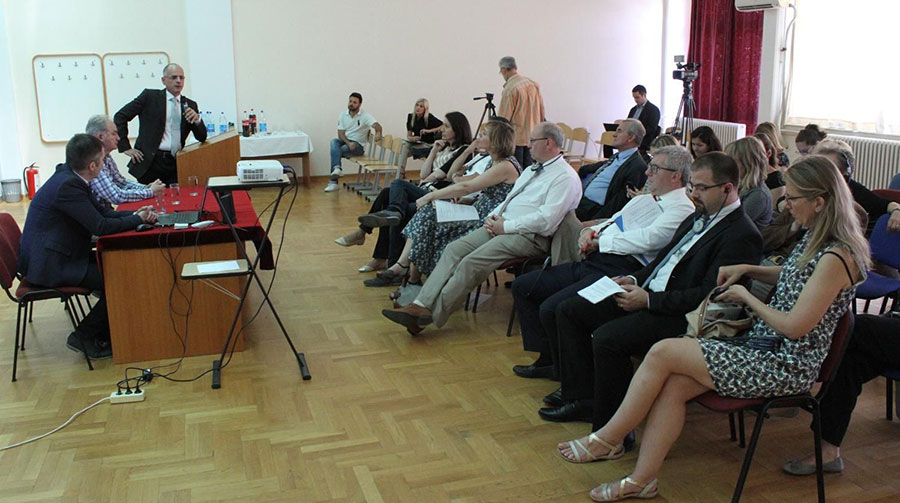
FoNet
“We have done an amazing job, all thanks to you,” he said and added that the money allocated from the Solidarity Fund was used to repair the infrastructure and strengthen flood prevention systems.
Aleksandar Pantelic, a member of the Obrenovac Municipal Council, said that May 2014 floods had inflicted damage on nearly 7,000 facilities and caused EUR200 million of destruction.
“Thanks to EU support,” he said, “we have reconstructed 1,331 family houses, constructed 41 new homes, reconstructed six primary and secondary schools and constructed a brand new one.”
Pantelic also said that the money was used to construct a 32-apartment building and reconstruct another one with 16 apartments. He added that the assistance had reached 371 SMEs and 2,461 agricultural holdings.
The Delegation of the European Parliament’s Committee on Budgetary Control also paid a visit to the Agriculture and Chemical School in Obrenovac which has been reconstructed through the EU Assistance for Flood Relief Programme after it had suffered considerable damage in May 2014.
A tile has been put down on the outer wall of the school marking the level to which the water had risen during the floods – about two meters.
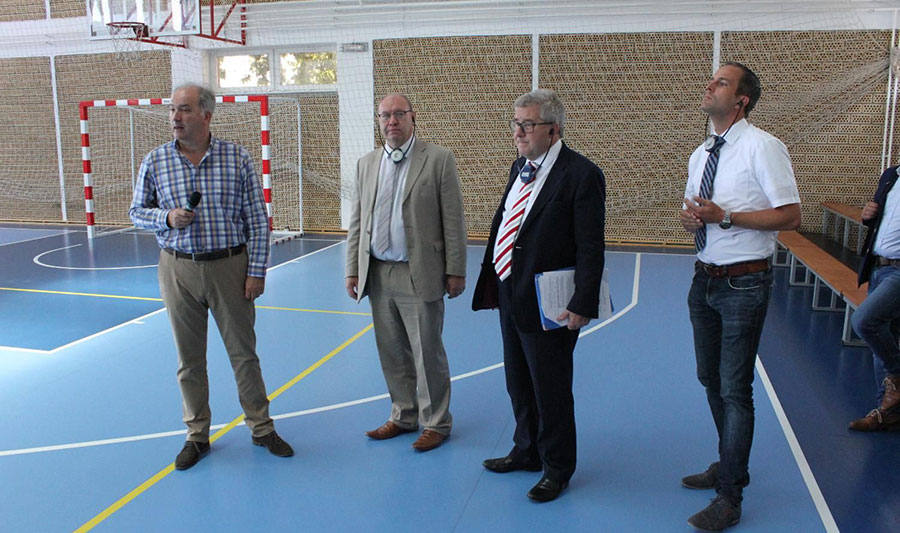
FoNet
School Principal Dragoljub Zlatanovic said that, thanks to EU assistance, each and every school in Obrenovac had been reconstructed after the floods.
According to him, the cooperation between the school and the EU dates back to 2003 when the EU started working to improve schools of agriculture.
MEP Derek Vughan congratulated Serbia on a job well-done, adding that the EU and the Parliament are happy to have supported Serbia’s efforts.
“What we care about, and what this visit is about, is to see the way Union funds are being used,” Vughan said.
During the two-day visit to Serbia, the Delegation of the Committee on Budgetary Control will make sure EU funding is spent efficiently in Serbia, assess the efficiency and effectiveness of structures set up and tasked with planning and implementation of pre-accession funds as well as evaluate Serbia’s plans to maintain administrative capacity in this area.

